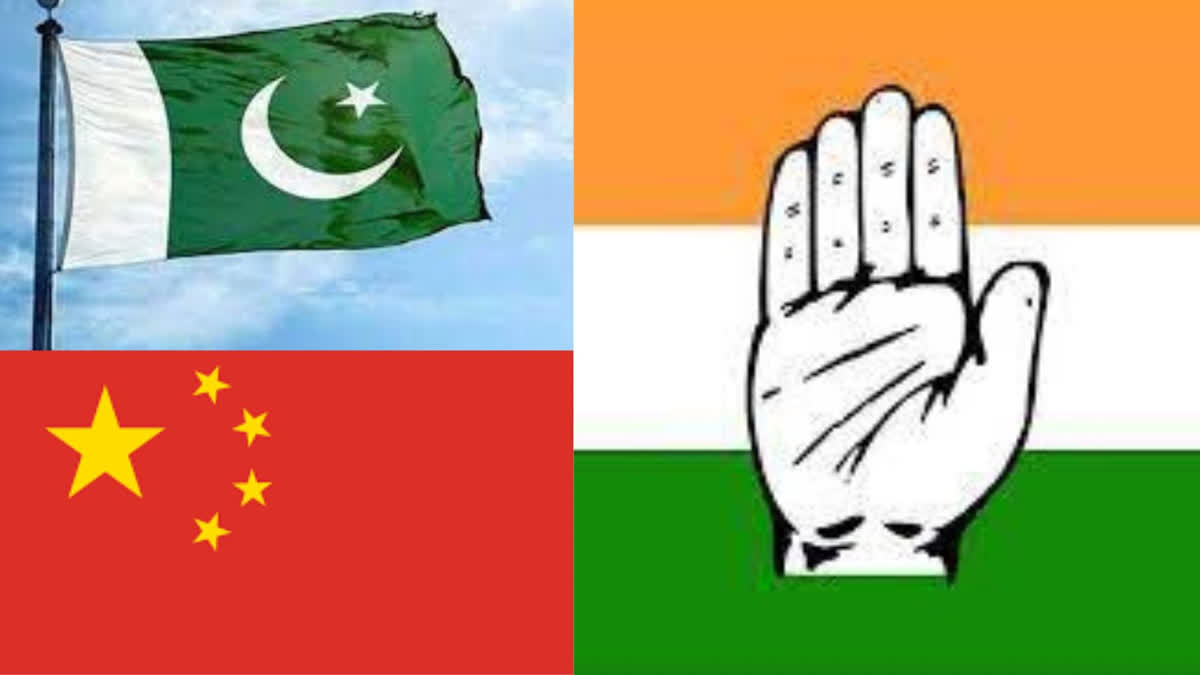New Delhi: In its manifesto released Friday for the 2024 Lok Sabha elections, the Congress stated that it will uphold continuity in India’s foreign policy. In the chapter on foreign policy running for 12 paragraphs, the party said that it would work to “restore the status quo ante on our borders with China” and “pay greater attention to our immediate neighbours”.
“Congress recognises that national security is not enhanced by chest-thumping or exaggerated claims but by quiet attention to our borders and resolute defence preparedness,” the paragraph on ties with China reads. “We will work to restore the status quo ante on our borders with China and to ensure that areas where both armies patrolled in the past are again accessible to our soldiers. We will take the necessary steps to adjust our policy towards China until this is achieved.”
So, what is the difference between the Congress’s position on relations with China compared to the current BJP-led government in New Delhi?
“Zero,” Pinak Ranjan Chakravarty, former Secretary (Economic Relations) in the Ministry of External Affairs with considerable diplomatic experience serving in South Asia, told ETV Bharat.
“How is it different from the current government’s position on China?” he asked.
In 2020, the longstanding India-China border dispute reached a new height with a deadly clash between Indian and Chinese soldiers at the Galwan Valley in eastern Ladakh resulting in casualties on both sides. This incident led to a significant deterioration in bilateral relations and sparked widespread public outrage in India. Despite several rounds of talks between military and diplomatic officials, including disengagement agreements, the situation remains tense, with both sides maintaining a large troop presence along the border.
The 29th meeting of the Working Mechanism for Consultation & Coordination on India-China Border Affairs (WMCC) was held on March 27 this year in Beijing.
“The two sides had an in-depth exchange of views on how to achieve complete disengagement and resolve the remaining issues along the Line of Actual Control (LAC) in the Western Sector of India-China border areas,” a statement issued by the External Affairs Ministry following the meeting read. “In the interim, both sides agreed to maintain regular contact through diplomatic and military channels and on the need to uphold peace and tranquility on the ground in the border areas in accordance with existing bilateral agreements and protocols.”
Coming to ties with India’s immediate neighbours in South Asia, the Congress manifesto states that, if elected to power, “we will work with Sri Lanka to restore the political and commercial relations between the two countries and help Sri Lanka resolve its political issues especially with the Tamils”.
India is a major development aid partner of Sri Lanka. With grants alone amounting to around $570 million, the overall commitment by the Government of India is to the tune of more than $3.5 billion. Demand-driven and people-centric nature of India’s development partnership with Sri Lanka has been the cornerstone of this relationship. Grant projects cut across sectors such as education, health, housing and industrial development.
However, a niggling problem in the bilateral relationship is about fishermen from both countries poaching in each other’s waters. Though the Congress manifesto states that it will help Sri Lanka resolve its political issues with Tamils, it does not specifically mention the issue of fishermen, many of whom are Tamils from the Indian side.
